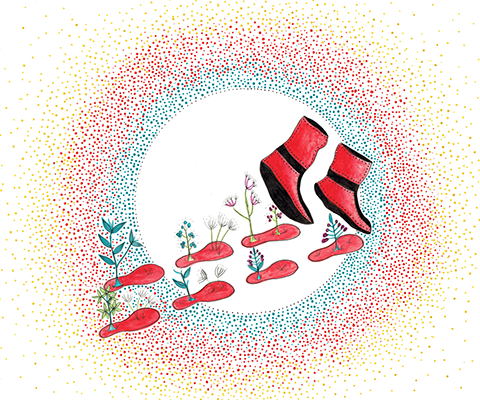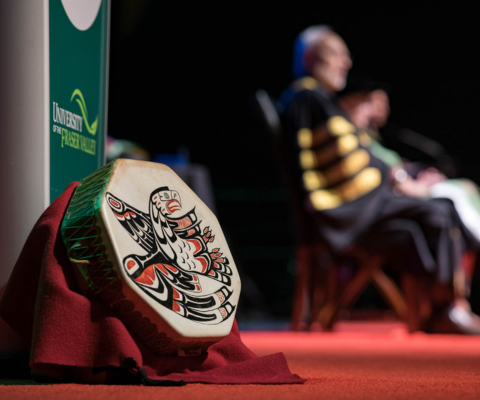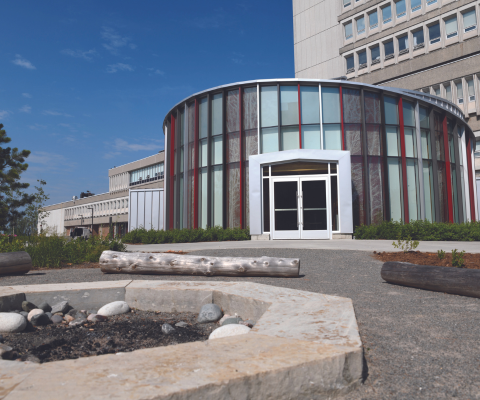Falling into step with First Peoples students

Indigenous and higher education leaders gathered together, virtually, for the 6th National Building Reconciliation Forum from September 21-23. This annual event provides a unique opportunity for participants to exchange thoughts, ideas and experiences to help advance Indigenous education and reconciliation.
This year’s Forum was co-organized by Université Laval and Université du Québec—marking the first time it was hosted in Quebec.
Bringing diverse perspectives together
Throughout the event, participants heard from Indigenous experts, leaders and academics, as well as representatives from Indigenous organizations.
Student ambassadors from across Quebec’s 11 First Nations and Inuit nations also graciously shared their lived experiences navigating the province’s education system. Learn more about their experiences.
Valuing Indigenous knowledge
One recurring theme at this year’s Forum was the importance of integrating and recognizing the value of Indigenous knowledge at universities.
“Indigenous languages, Indigenous contexts and Indigenous knowledges is another knowledge system…and it has the right to live, to exist and to be available to Indigenous Peoples.” – Dr. Marie Battiste, Special Advisor on Decolonization, Cape Breton University
Promising research initiatives
Since the Forum began six years ago, universities across Canada have made positive strides in supporting Indigenous education. This year, some new initiatives were highlighted.
The Université du Québec à Chicoutimi shared that their institution is working with local Indigenous communities to develop a research model that will help respond to Indigenous-led research questions as well as train a new generation of Indigenous scientists. Another researcher from the Université du Québec en Abitibi-Témiscamigue shared that her research findings are being translated to Inuktitut to ensure they are accessible and useful to the communities most impacted.
Reconciliation is a continuous process
The artwork for this year’s Forum, created by Eruoma Awashish, conveys an important message:
“With every step, we leave behind a footprint. We are following in the steps of our ancestors and, at the same time, forging a path for the next generations. As we walk into the future, new promise springs forth.”
Universities are ready to forge new paths alongside Indigenous Peoples, with this year’s Forum being one of many steps ahead.
About Universities Canada
Universities Canada is the voice of Canada’s universities at home and abroad, advancing higher education, research and innovation for the benefit of all Canadians.
Media contact:
Lisa Wallace
Assistant Director, Communications
Universities Canada
communications@archives.univcan.ca
Tagged: Indigenous education, Strong and inclusive communities



